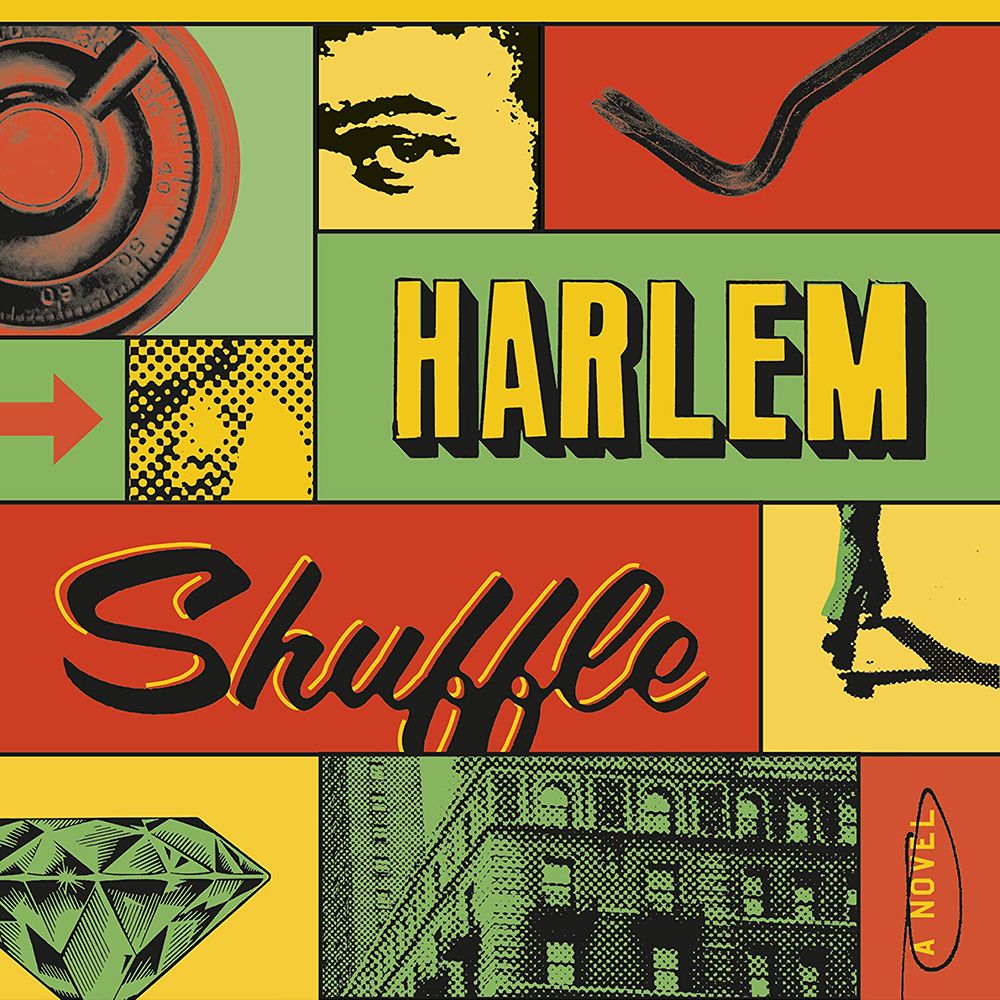
Harlem Shuffle by Colson Whitehead
Harlem Shuffle by Colson Whitehead—the two-time Pulitzer Prize winner—is a novel of literary fiction based in the crime world of 1960s Harlem, New York. The book description from the publisher describes it best: “Ray Carney was only slightly bent when it came to being crooked. To his customers and neighbors on 125th street, Carney is an upstanding salesman of reasonably priced furniture, making a decent life for himself and his family. Few people know he descends from a line of uptown hoods and crooks, and that his façade of normalcy has more than a few cracks in it. Cracks that are getting bigger all the time… Harlem Shuffle's ingenious story plays out in a beautifully recreated New York City of the early 1960s. It's a family saga masquerading as a crime novel, a hilarious morality play, a social novel about race and power, and ultimately a love letter to Harlem.”
Protagonist / anti-hero Ray Carney appears to be a legit furniture store owner to everyone in his life, even his wife, but his crooked cousin Freddie is always enticing Carney to dip his toes in the waters of the crime world. To the hoods of Harlem, Carney isn’t a legit businessman. He’s a “fence,” someone who appears to be legit but is really allowing petty crimes to filter through his furniture store. When his cousin convinces him to be a part of a heist of one of the fancier hotels in Harlem, Carney officially becomes a part of the crime world. His no-good cousin gets into hot water, threatening to bring Carney’s façade to light.
This novel is told in three parts. The first was interesting, zipping along with taut, crackling writing. It’s Whitehead; I came to expect it and reveled in his beautiful sentences. But the second part of the novel sagged, bordering on being… boring. I almost put the novel down for good four or five times. Some of this has to do with the nature of Carney’s criminal endeavors. Reading about Carney trafficking in stolen TV sets or the quality furniture of deceased Harlem citizens is like getting the lowdown about a crooked accountant adjusting the books or writing bad checks—not very exciting. But once cousin Freddie states in the latter part of the novel, “I was pulling a Ray-ray… Keeping my head down, keeping it boring” I realized that maybe the slowness of Part Two was by design. Carney was attempting to live an undetectable life, and it came through in Part Two to the detriment of my attention. Fortunately, Part Three picks up as Freddie’s bad choices pile up and his junkie buddy Linus winds up dead in a bath tub, alerting his wealthy family to find Carney and retrieve what Freddie had taken from them and was unwittingly in Carney’s possession.
In spite of the novel’s sagging middle, there are some amazing set pieces in 1960s Harlem as described throughout by Whitehead, and the racial injustice of police brutality of the 60s is all the more relevant today. The stakes are raised in Part Three as everything Carney has built is threatened by Freddie’s bad choices, as well as his relationship to his cousin that is something more akin to close brotherhood. Whitehead has a gift for wrapping up stories, and the final chapter delivers in spades, a limber denouement packed with concluding details. But after reading Whitehead’s previous, stellar novel Nickel Boys, I expected more from Harlem Shuffle. Wishful thinking on my part, but this was still an enjoyable read nonetheless.
I enjoyed this book and I recommend it. I would give this book 4 stars.
Buy the hardcover on Bookshop: https://bookshop.org/a/152/9780385545136

